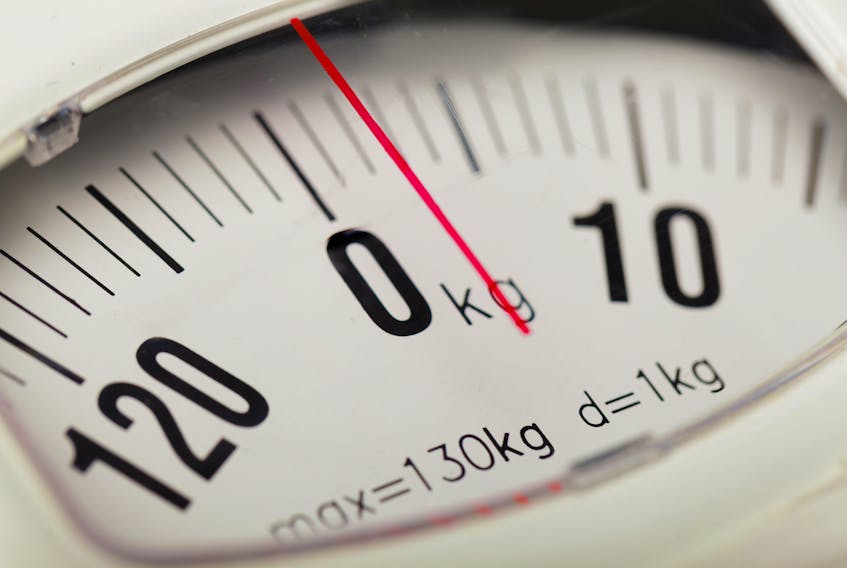“New year, new me” is potentially the most infamous statement uttered each January.
Every new calendar year brings a renewed sense of hope and a chance to start fresh. However, despite the encouragement and motivation of the crisp 01 on the almanac, many of us let our dreams fade before the Christmas tree is even taken down.
Motivation is hard to come by, especially when you’re inundated with holiday debt, snow clearing, darkness and routine. And before you know it, the display of yoga mats, exercise DVDs, and keto cookbooks at every department store gets old.
The new year really brings out the toxicity of diet culture.
Relationships with food can be visualized on a spectrum with healthy eating on one end and eating disorders on the other. In between there are a variety of points that eventually move from healthy to disordered eating, and then an eating disorder.
Physical fitness, weight loss and nutrition education always seem to be the top lifestyle change on the lists of consumers in today’s society. For some this can be a reasonably healthy goal. Living a life of fast food and extended television time is not something to be promoted any further. But things can, and often will, go the opposite direction. Excessively exercising, significant weight loss, and extreme fad diets are all a slippery slope into serious physical health consequences and potentially devastating mental health issues.
What is diet culture exactly? It is the systematic belief and the behaviours in society sending the message that weight and size are the ultimate determinants of our worth as people.
While uttering these words may seem absolutely crazy — how could someone actually believe that you’re only worth a number on a scale or on the back of your belt — psychological studies have proven that this message has a notable impact on just about everyone.
Magazines, television, movies, product ads, health clubs, celebrities, and social media all play key roles in promoting the idea that how you look matters more than what you have inside. Every time we comment on Kylie Jenner’s style, pass judgement on the latest trends in store windows, visit the website for a weight loss company, consider the tempting 50 per cent off sign-up fee at a gym, or pose in 13 different ways for that perfect Instagram picture, we are surrendering to and perpetuating diet culture. It’s awfully difficult to avoid such culture when you are surrounded by so many forms of this message of vanity at all times.
For many people this leads to disordered eating and for some it becomes an illness.
Nobody wants to wear butt-enhancing jeans, they just want to have a better butt. It’s true that some exercise is good and that it is linked to increased health and improved mood, but obsessing over how many calories you burn or how long you drudge on through the pain of the treadmill becomes a burden.
Relationships with food can be visualized on a spectrum with healthy eating on one end and eating disorders on the other. In between there are a variety of points that eventually move from healthy to disordered eating, and then an eating disorder.
The current societal ideals play a consequential role in where most of us stand, which is not closer to the healthy eating end. For example, fad diets often encourage consumers to cut out important nutrients from their diet, sometimes entire food groups. Side effects like sluggishness and brain fog might be evident, but there are so many more health issues that arise when your body does not receive the fuel it needs. And this lack of nutrition can impair judgement to the point where it becomes a vicious cycle of starvation.
Further augmenting these issues are the conclusions we draw regarding exercise: the more time we spend at the gym the more “fit” and therefore attractive we will be.
Nobody wants to wear butt-enhancing jeans, they just want to have a better butt. It’s true that some exercise is good and that it is linked to increased health and improved mood, but obsessing over how many calories you burn or how long you drudge on through the pain of the treadmill becomes a burden.
You are worthy. Your size doesn’t matter. You are beautiful inside and out. You don’t have to be muscular to be a man.
Combined, these behaviours can become deadly, disregarding the expansiveness of other diet culture products such as supplements and pharmaceuticals. It can lead to a lifetime of health problems as well as a constant mental battle surrounding self image and worth. Not to say there aren’t treatments, but it is a fight that is not worth picking.
So, what is a good replacement new years resolution to make and stick to in 2019? Perhaps your answer is to kick diet culture.
This might involve being less critical of celebrities’ styles, taking a break from Facebook or Snapchat, throwing out your paleo recipes, treating yourself to that chocolate bar you really wanted, enjoying your gym time, or finding a self compassion mantra to repeat to yourself each day. You are worthy. Your size doesn’t matter. You are beautiful inside and out. You don’t have to be muscular to be a man.
Do it because you are deserving of self love in 2019.
Kirsten Dalley is a neuroscience student, published writer, and robotics enthusiast from central Newfoundland.
RELATED:









